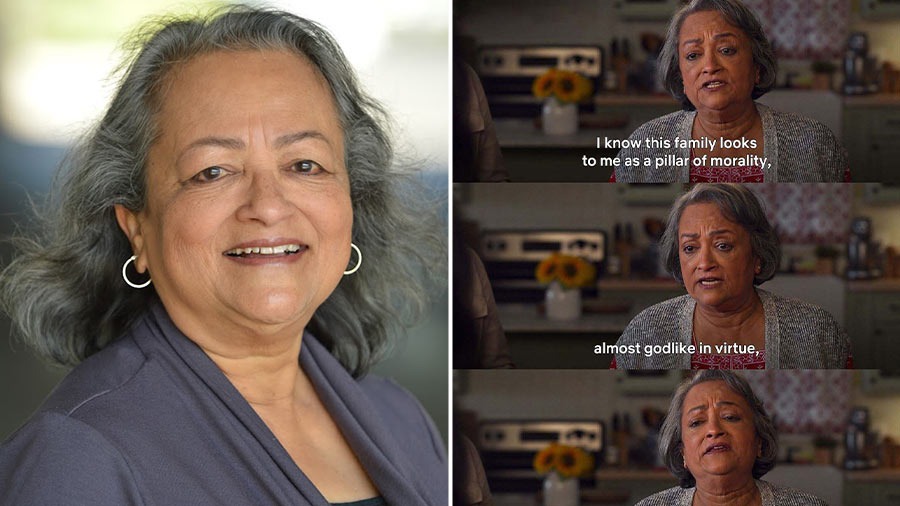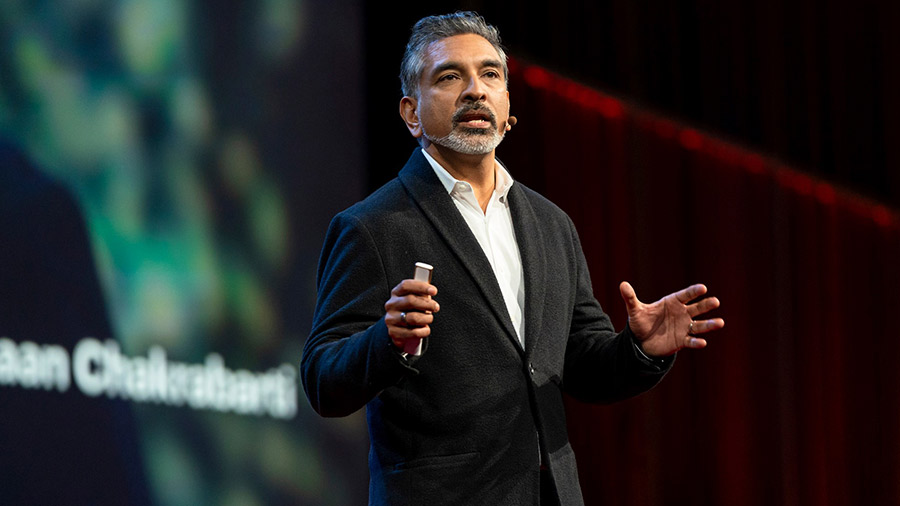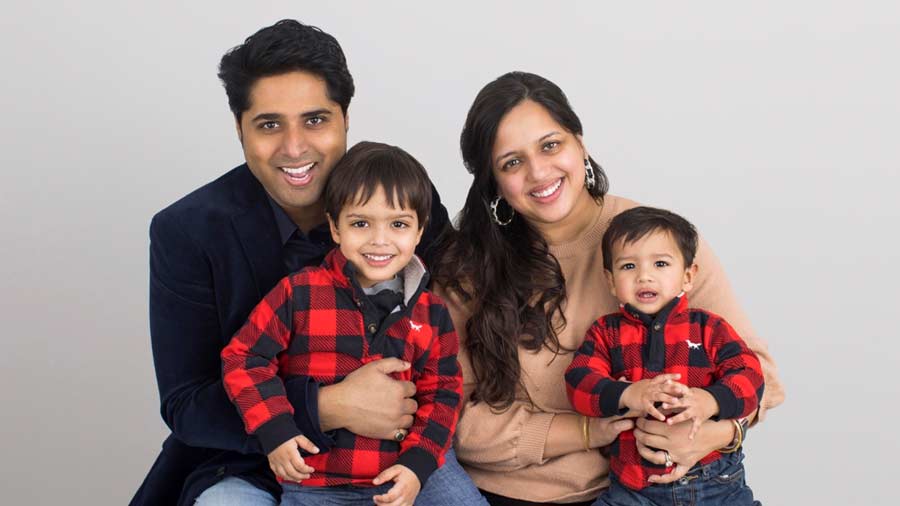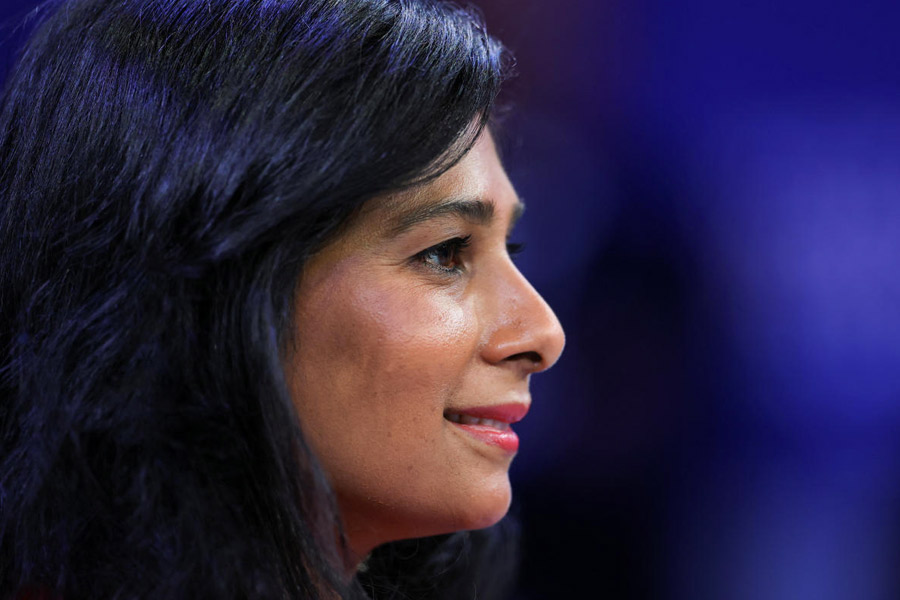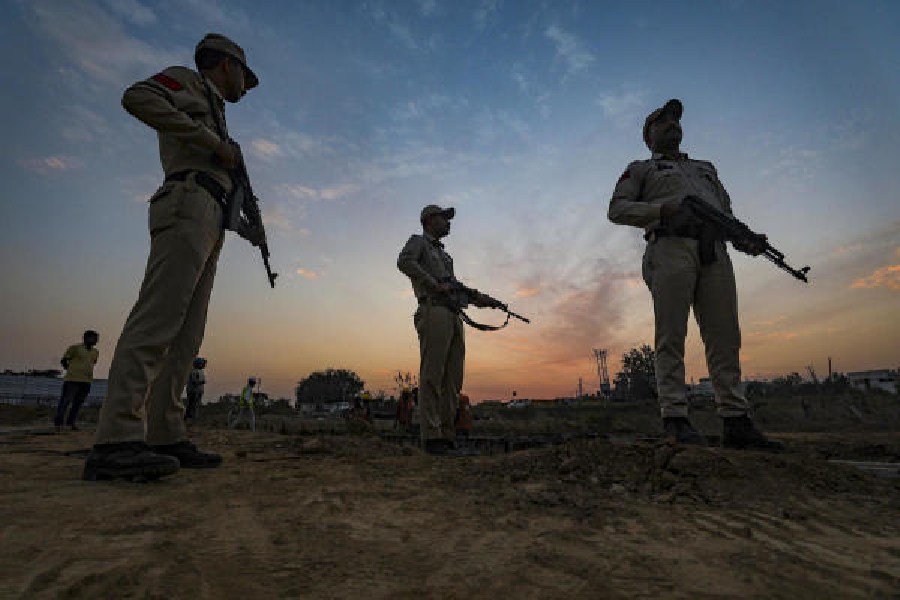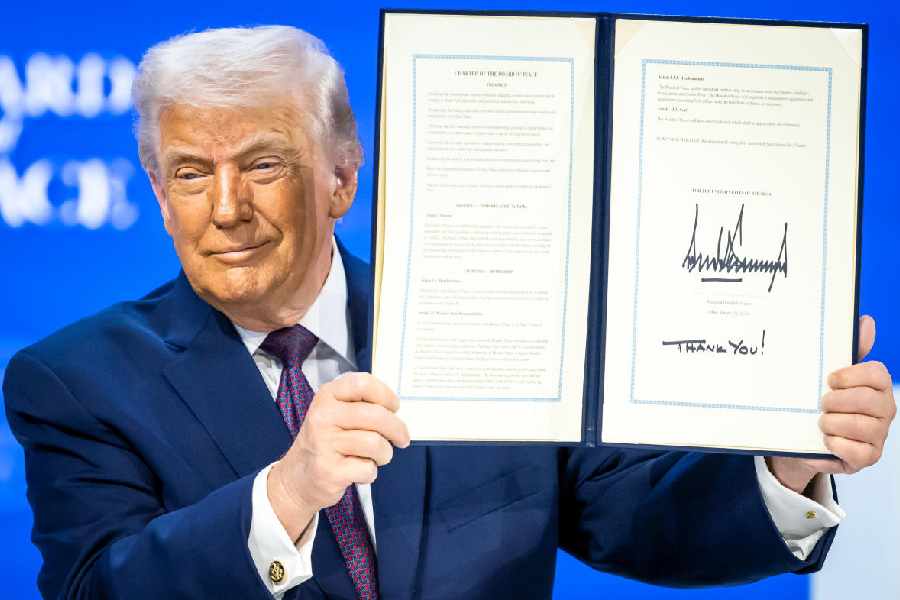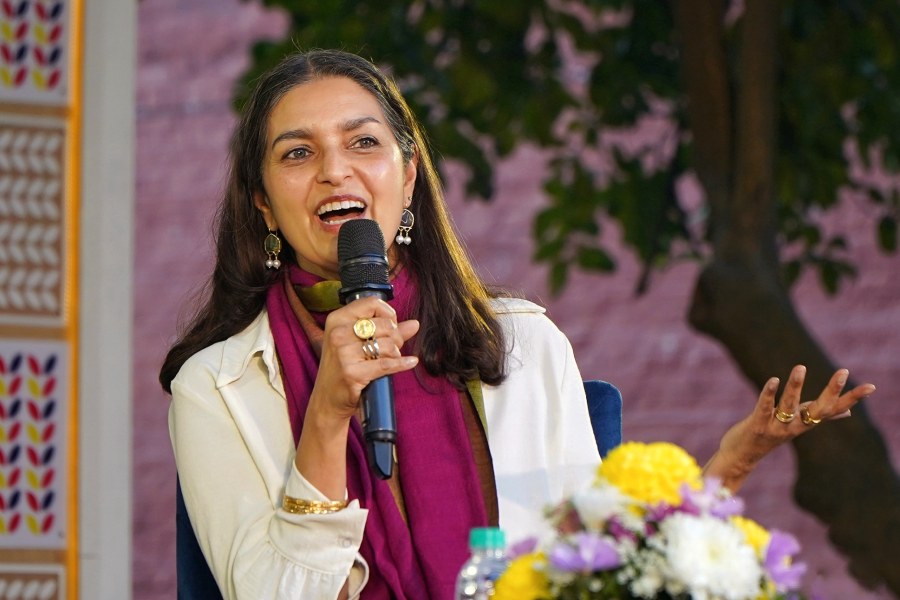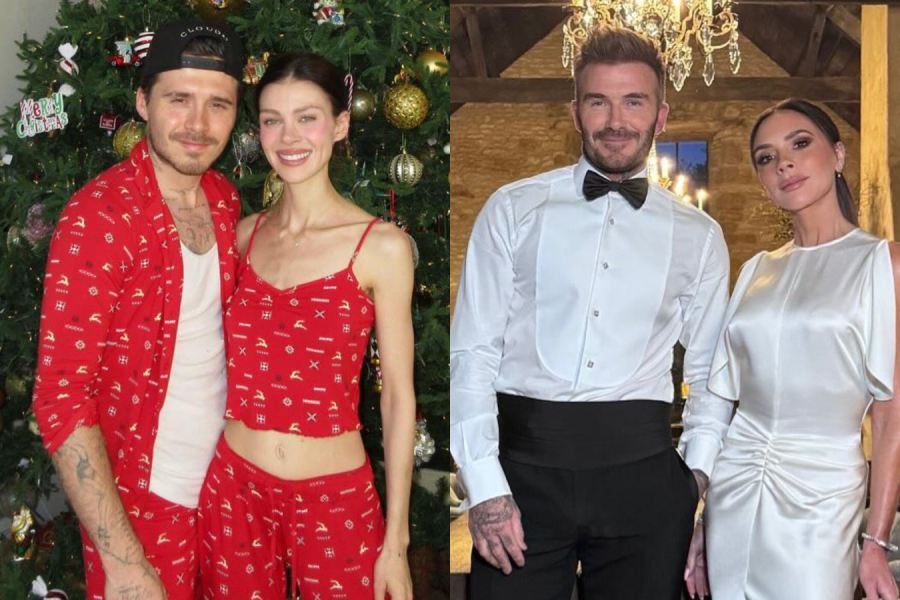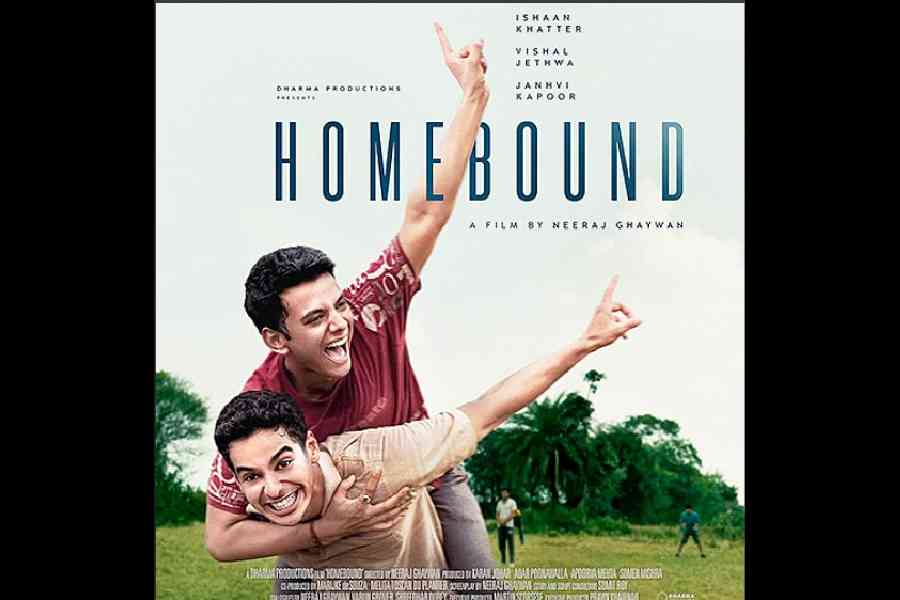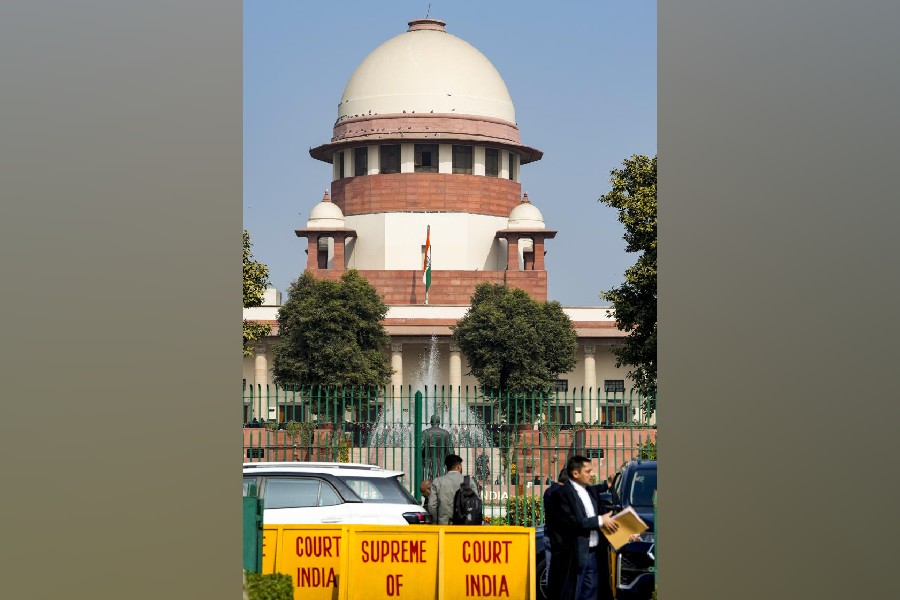If you’ve binge-watched Never Have I Ever then you’re sure to have fallen in love with Devi, Nalini, Ben, Kamala and Paati. Devi’s adorable paati (grandmother) with her sass, humour and impactful screen presence has managed to leave a lasting impression on the Never Have I Ever fans. She has all the traits of a relatable grandma, her smart quirks tickle a giggle, and is exactly the Paati this Netflix series needed!
Offscreen, Paati aka Ranjita Chakravarty has many other feathers in her cap. She holds a prestigious office at Stanford University, is an alumnus of Delhi’s Lady Shri Ram College and Jawaharlal Nehru University, a theatre actor and director in the US, and a probashi Bangali (yes, you read that right!).
While we were still nursing their hearts from the Never Have I Ever farewell, we reached out to the California-based actress and she obliged. In a candid chat with My Kolkata, she spoke about her life in India and the US, becoming Paati, her love for Bengali food, and much more.
Edited excerpts follow…
My Kolkata: Tell us about your early life in India— the Internet says you were born in New Delhi and studied in Lady Shri Ram College and Jawaharlal Nehru College? And also that you’re a Bengali.
Ranjita Chakravarty: Yes, I am a Bengali from Delhi. My parents always spoke Bengali at home, so I was familiar. We never studied it as a subject because we did Hindi, but of course we spoke Bengali at home. I can read Bengali.
It’s incredible how much information you can get on the net. Most of it is correct. I was born in New Delhi in Willingdon Hospital, I think now it is called Ram Manohar Lohiya. I went to school at the Convent of Jesus and Mary in New Delhi, in fact we just had our 50th high school reunion. Yes, I went to Lady Shri Ram College and then to JNU.
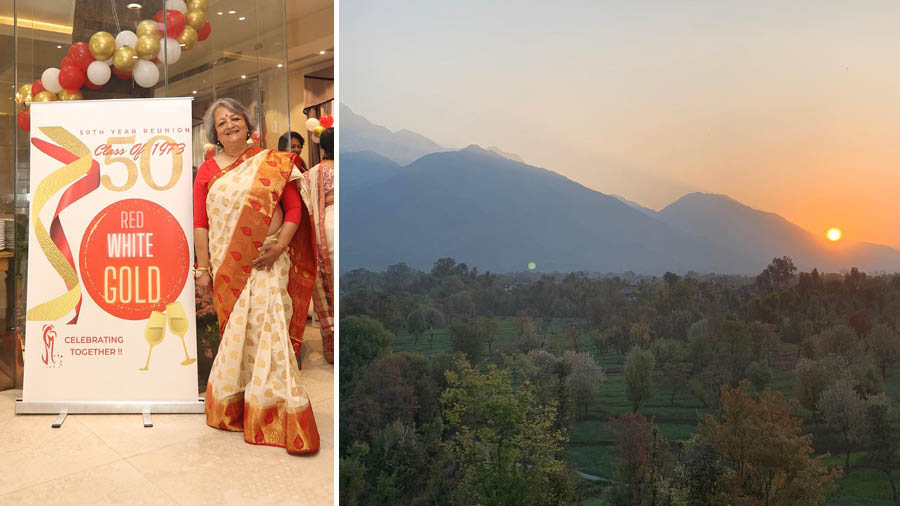
(L to R) Photograph of Ranjita Chakravarty during her visit to India in March 2023, and a photograph of a landscape @Ranjita Chakravarty/Facebook
Are you still in touch with your batchmates from school and college?
Yeah! I am in touch with my CJM (Convent of Jesus and Mary) batchmates. I went there from kindergarten to grade eleven — at that time we did not have twelve. I am also in touch with my Lady Shri Ram college batchmates. We have quite a big chapter here. I have done some interviews with the Bangalore (Bengaluru) chapter and stuff like that. And also with some of my close batchmates from JNU.
What was the JNU experience like?
It was amazing! I was there from 1977-79..It was really a wonderful place (JNU). I studied International Relations. It was my first exposure to not just learning from books but also through discussions and seminars, and the professors engaged us in discussions and things like that. We were young in those days, and it was a wonderful experience. Yes, there were marches — some necessary, some not so necessary (laughs). I think it was my first encounter with student politics because Lady Shri Ram was kind of a sheltered place. But JNU was the first time I met with different student leaders and I think one year I was part of the Election Commission. I think it opened my eyes to politics, to how people from all over India — from remote villages — came to JNU. That was eye opening, because being in Delhi, we lived sheltered lives. Just getting that exposure was very, very beneficial, I think.

I think I knew from childhood that I liked to be on stage, because I did dance. I think my very first stage performance was for the school Geetobitan. I still remember that song, 'Gaanguli mor shaibaleri dol'. I think I was five or six years old.
How did acting come about? Were you always interested in it?
I did one or two plays in school, nothing major. However, I think I knew from childhood that I liked to be on stage, because I did dance. I think my very first stage performance was for the school Geetobitan. I don’t remember what the occasion was but they needed some children to dance. I still remember that song, Gaanguli mor shaibaleri dol. So that was my first time on stage. I think I was five or six years old.
I participated in a lot of inter-college dance competitions but I did a couple of plays with boys from Bhagat Singh College, I think, for an inter-collegiate festival. The earliest memory I have of being on stage is in Delhi for a play. It was in Triveni Kala Sangam where I did Pagla Ghora by Badal Sircar with a group called Rachna. I played all four female roles. It was a ticketed performance.
In 1981, I moved here (United States of America) and I didn’t do too much for a while. I think, in 2000, after I moved to California I got back into theatre with a group called Naatak. Subsequently I did plays with EnActe and then directed plays with Bay Area Drama Company as well as EnActe.
Tell us a little bit about the journey from Delhi girl to Paati… How did acting in the US happen?
I had got married in the meantime and was sort of following my husband. He passed away in 1997. Before acting, I was dancing (Odissi) with Jyoti Raut. I was always on stage. Soon after I came to California around 1997, I discovered the group called Naatak. It is one of the oldest groups here and I auditioned. I think the first play I did with them was Khamosh! Adalat Jari Hai (Vijay Tendulkar’s Silence! The Court is in Sesion). It was in Hindi. There’s not a lot of scope for us in mainstream English because they do a lot of musicals, which I was not really into. It started with doing plays with Naatak and I have done a lot of plays with them, and played some memorable roles. I have been acting and directing in these three companies — Naatak, EnActe and Bay Area Drama Company — for the last 20 years and have become pretty known in the Bay Area.
Lot of people think it’s really easy — “How did you get in? Can I also get in?” — but it isn’t. I have been doing this for a long time. It (acting) wasn’t my profession because I also have a daytime job at Stanford, but it was always a very serious hobby. It wasn’t just timepass, it was a serious hobby because I love to act.
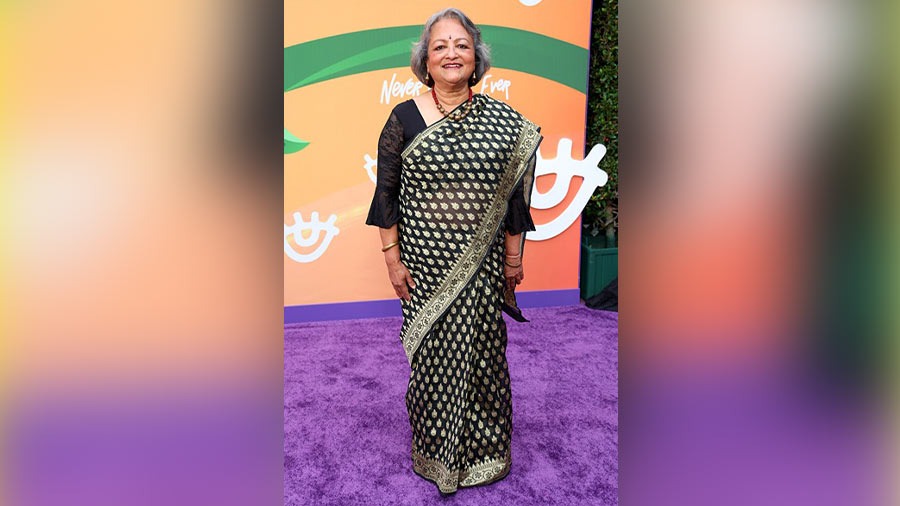
At the premiere of ‘Never Have I Ever’ Season 4, wearing a sari from Bengal
For Paati, I auditioned. I had seen the first season of Never Have I Ever and thought it was an interesting show. For season two, they had open auditions and I auditioned for the roles of both grandmothers.
It’s almost unreal how I got in. A friend of mine, Shoma Mitra, told me they are auditioning old people for Never Have I Ever, season two, and that I should apply. I said no to the idea saying I didn’t have an agent. It was also the height of Covid so I didn’t think I could go to LA (Los Angeles), etc. But she said I should just apply”. That’s how I applied for the role and then got the audition call. Everything was online and my work was flexible because we were working from home. So on days I was not shooting, I was just doing my Stanford work. It all worked out. Almost as if the Universe said, you need to do this role. Right time, right place, little bit of luck and maybe a little bit of talent. I don’t know.
You joined the Internal Audit Department of Stanford University in April 1998 and are currently the Director of IT Auditing. What does the role entail?
We do audits for Stanford University. Stanford is a university with seven schools, and we do the system audits for the entire university, for the two hospitals, and we also have a Physics lab called the Slack Accelerator Lab. It entails basically, in short, keeping Stanford out of trouble. We want to make sure that only appropriate people are accessing the system, and funds are spent in the correct way. I think the best way to describe my role is that I look at risks in the systems arena, and help management mitigate those risks.

My first directorial venture was actually a Tagore classic called Chitrangada, with Enact. I did it like a play with the three characters, and I had dance items. The whole thing was in English. I actually found Tagore’s own translations, and some other translations, then edited it and added songs.
How do you balance responsibilities at Stanford and your acting commitments?
I started acting in the year 2000, but mostly it was theatre. I did some short films, and one with Anupam Kher called Perfect Mismatch. It’s more like a hobby and has not interfered with my regular work. In the evening and on weekends people go to parties, I went for rehearsals. It’s just a matter of interest. If you are interested in something, you’ll find time for that.
Never Have I Ever was the first time I had to take vacation time to go shoot in LA. It didn’t really affect anything because Paati was a supporting role. I would probably shoot maybe one or two days a week. I think in total, for the entire season, I may have taken two weeks off. Since I have been in Stanford for almost 25 years, I have a lot of vacations. So, I use that vacation to go and act.
At the shoot, I conducted my audits on Zoom, and my team was here in the Bay Area. I would log in from my hotel room. Let me put it this way: nobody really missed me at work because I attended almost every time. I even gave a presentation from a trailer. It was a lot of technology that made it possible. If we didn’t have Zoom, for example, I don’t think I would have been able to do this. I am also very lucky that I can work remotely.
Of course, in the future, if this becomes a thing and I get more roles, I’ll have to make a decision, but right now I can do both. It’s pretty nice.
How would you describe your journey as an artist so far?
I have played some really interesting roles like I did a play called Marjorie Prime where this woman has dementia and her children get her a computer as a companion. The artificial intelligence helps Marjorie remember her past. Then I did the role of Ratan ki Maa in Jis Lahore Nahi Dekhya, which was set during Partition. In Rashomon I did the role of a psychic. I have done some negative roles in some short films, like a serial killer in one.
I enjoy whatever role is given to me. I am not like ‘I won’t do this, I won’t do that’. Depending on the role, I’ll do it. I try to get into the character as much as I can. My journey has been pretty interesting. I have done different types of roles. It hasn’t yet ended, it’s still going on. The journey has been a lot of fun.
You have worked with popular names from the Indian film industry as well. What was that experience like? Was it different from working in the US, or with an all-American cast?
The crew in Perfect Mismatch was all American here (in the US) but there was Anupam Kher, Boman Irani and Nandana Dev Sen. They are all very professional. I literally was a nobody when I did that film and they (Anupam and Boman) treated us with so much respect. Anupam Kher actually wrote a scene for me in our makeup trailer! He needn’t have done that, but it just showed what a generous actor he is. That kind of stuck with me. I have also tried to be as generous as I can, helping my co-actors. I have been super lucky — whether it has been an American cast or Indian cast — to work with very professional people who are very respectful and don’t care whether you have done one film or 500 films.
And of course, Never Have I Ever is another level altogether. The reach and the recognition factor. Wherever I do, people recognise me. The crew and cast were wonderful!
Paati is now a household name. Never Have I Ever is one of the most popular OTT series. Could you tell us about your experience of working in the project, playing the role of Paati and any special memories that you shall remember the project by?
To be honest, I am actually surprised how much it resonates with people and not just Indian people. All types of people, Indian and non-Indian, tell me that I remind them of their grandmother. A lot of people can relate to certain grandmother characteristics — they are loving, funny, politically incorrect, saying whatever comes to their mind. She (Paati) is a mixture of traditional values and I can see why people relate to it. But, to be honest, my head still reels. Maybe you can tell me why it is so relatable? Many youngsters who have grown up in this country say it’s their story, this is how they felt. People in India also, why do they like the story so much? Because it’s about family, it’s about grief, about how you deal with grief. I look at myself as a comic relief. The show has its serious things and then I come in and people can laugh along with me. I think it’s a very cleverly written show, very well written.
One of my favourite things as Paati, other than doing the usual Paati things, was when I stood up for my daughter-in-law where Devi says she is very upset that her mother is dating somebody. I give her a half-hearted slap and say, “How dare you talk about your mother like this. She has given you everything. She is an adult and she can do what she wants.” I thought that was such a wonderful memory for me and not only for the character. Usually we see a mean mother-in-law, but I was really happy that they went away from that and had the mother-in-law standing up for her daughter-in-law. That was one of my favourite memories as a character.
When I look at that, I think Paati also evolved. She arrived as someone who was going to take care of her grandchildren and help her daughter-in-law, but then she came into her own. She became very sassy, started giving cultural references, was open to having new friends, new experiences — if you see in season four, she also gets married. She was open to all the new possibilities that life had to offer — second chances. I think that was a very nice thing to show for an older person, and especially a widow to sort of have a second chance at happiness, to have a companion. It was thoda sa hatke. I thought that was nice.

I mostly eat Bengali food. I like vegetarian dishes like jhinge posto, chholar dal, and of course luchi - mangsho. I don’t have a huge sweet tooth but I like certain types of payesh, like my mother used to make.
Growing up in a Bengali household, what were the challenges of playing a south Indian Paati, if any?
In Never Have I Ever I spoke Tamil. A lot of people thought I was Tamilian because my pronunciation was very clear and right. But then I had friends who taught me the right pronunciation. Even Poorna (Jagannath, who played Nalini) is a Tamilian. So, I would ask her.
A grandmother is a grandmother. It is so universal. Non-Indians are coming to me and saying I remind them of their grandmother. They just love the role. I am definitely Indian in the series, but it has a universality.
I just played the role with as much authenticity as I could, as I try doing with every role. Even though I was saying funny lines, I did not want to make it comical or slapstick. I said it seriously because in my head, I was saying a very serious thing. That it was funny for other people — that’s what it was meant to be. As an actor I have to play it truthfully. To answer your question in short, no I did not have any challenges to overcome as such because I am a Bengali.
Paati’s character, while fun, also touches upon a few subjects not explored enough in mainstream content, like finding a partner later in life and after the passing of a spouse, evolving with the life lessons of younger generations — how do you analyse the character and the message that she sends out?
It was a surprise to me when I read the script for the final episode where I get married. But there isn’t much analysis. No matter what your age is, you can still want a companion, whether as a friend or husband. So for me, it is normal. It’s not often shown but it’s a very normal thing, right? It’s not always easy to get a partner. A lot of young people and old people struggle to find the right partner. I don’t think there was a lot of analysis needed because she just met someone and was willing to give it a try.
Do you visit India often? Also have you been to Kolkata?
I visit India almost every year. I was just there in March for my high school reunion. I don’t often go to Calcutta (Kolkata). The one sister I have in Calcutta, she always comes to Delhi when I go. I think the last time I visited Calcutta was probably in the mid 2000s. I haven’t been there in a long time. But I go to Delhi, and from there I’ll go somewhere — like this time I went to Dharamshala with my school friends. Then one year I went to Kerala, one year to Rajasthan. So, places that I haven’t been to I’ll go and visit. I go every year. My parents have passed away, but my sisters are there.
What are your favourite parts of Kolkata?
I know I want to visit sometime during the Durga Puja because I have heard so much about the amazing pandals. When I went to Calcutta last, I took my children and we went to see the sites. We went to Victoria Memorial and then to Chowranghi, to Park Street. Since I am not from Calcutta, I don’t have favourite haunts. I have done the touristy stuff. My sister used to live in Ballygunge Place. I have been to some of the clubs.
What is your favourite Indian cuisine? Is there Bengali food that you like?
I mostly eat Bengali food. I like vegetarian dishes like jhinge posto, chholar dal, and of course luchi - mangsho. Although I am trying to not eat too much meat these days. I don’t have a huge sweet tooth but I like certain types of payesh, like my mother used to make. Bengali food has so much variety in vegetarian and non-vegetarian, like bhaja moonger dal with torkari. I love Bengali food. I even like paat pata bhaja and korola. We don’t get paat pata (jute leaves) here but karela we get. Sometimes I make jhinge posto. And of course maacher jhol!
What are your upcoming projects?
I did a cameo for a movie called American Underdog. It’s in post production. I am doing stage reading for a new work called Nerve by Minita Gandhi. We are going to do it in a theatre here called Theatre Works. Right now, not many projects but I’m working at Stanford and doing a few things here and there. There is going to be a Bangla Natya Mela in California. I think I am going to help out with a play that some of my friends are pulling up.
Rapid fire
Never have you ever…
A major feature film. And, I would like to do that! I would like to play a detective.
Paati to you is…
Sassy, loving and funny.
One word that comes to mind when you think of India.
Home. Comfort.

